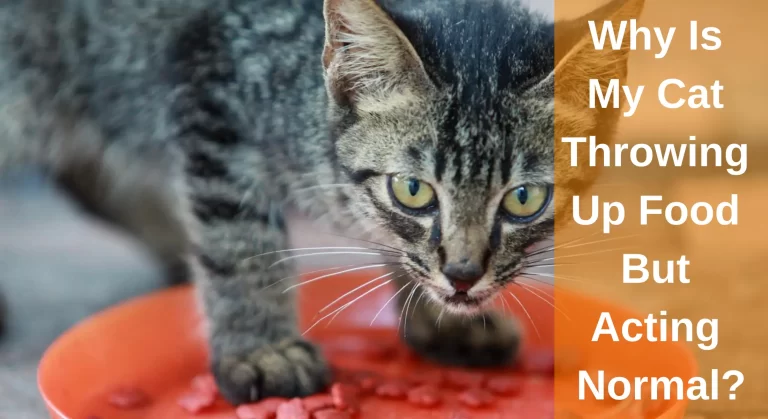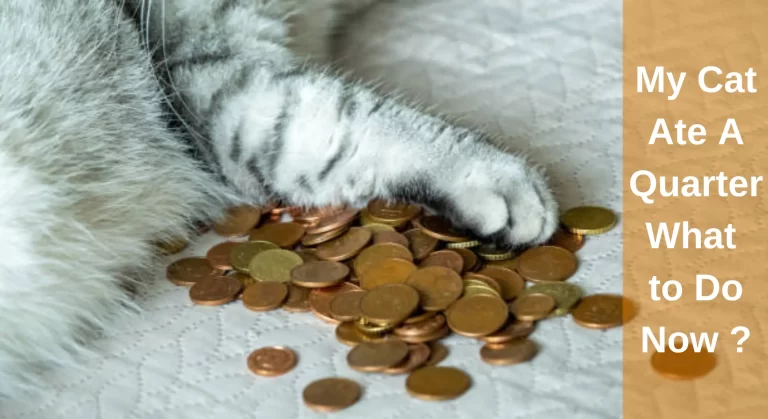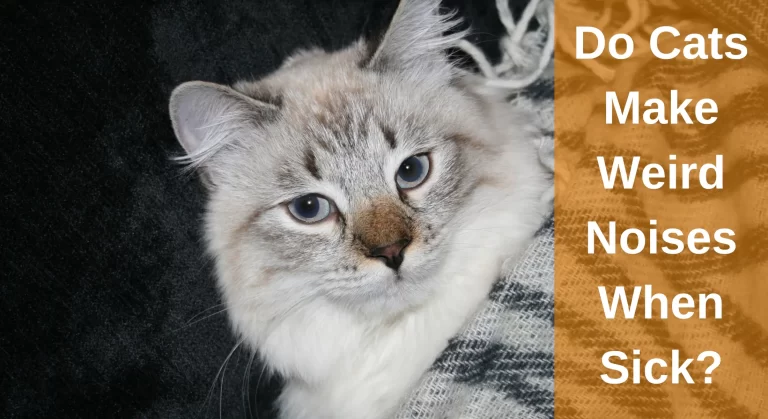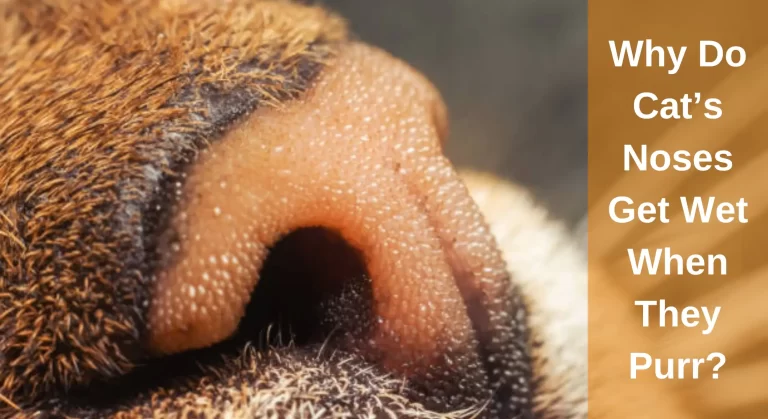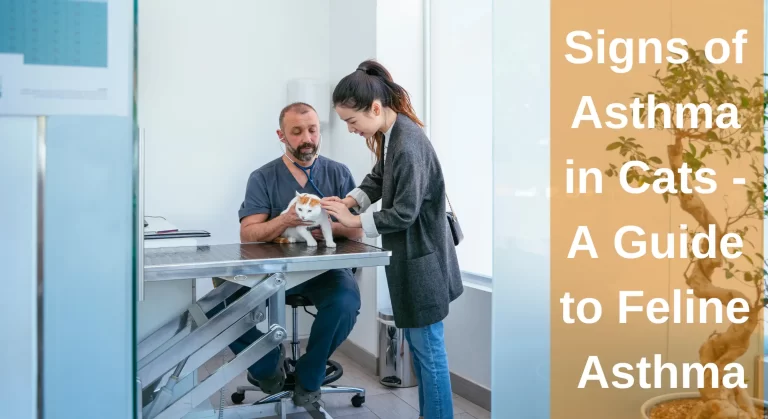Can You Give Cats Milk of Magnesia? Things You Need To Know
The most familiar example of milk of magnesia, which has been utilized for a long period is to cure constipation issues. Everybody has sometimes suffered constipation and abdominal discomfort, and most people also utilized milk of magnesia to treat these conditions. So, if your cat is experiencing constipation? Can You Give Cats Milk of Magnesia? Is it also work for cats?
No, it is not safe to give cats milk of magnesia without consulting your vet. It is crucial to determine the appropriate dosage based on your cat’s individual factors such as weight, age, and overall health. Self-medicating your pet can be dangerous, as certain human medications can be toxic to cats. Always seek professional veterinary advice for proper treatment.
Now, most of you might be thinking about the disadvantages of feeding milk of magnesia to cats and also want to know some effective alternatives of it. So, here in this article, I’m going to explain the effect of milk of magnesia on cats, effective methods to avoid constipation, and provide you with important information to ensure the health and well-being of your furry friend. So, let’s begin!
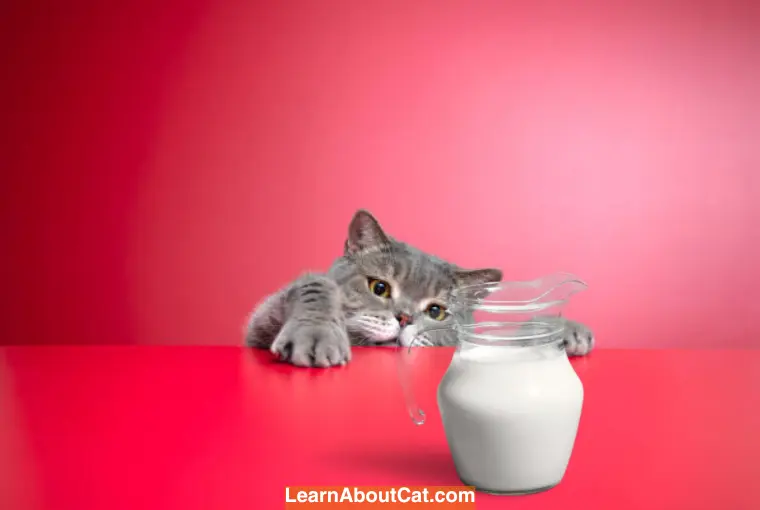
Is It Safe to Give Cats Milk of Magnesia? Can Cats Have Milk of Magnesia?
Milk of magnesia is safe for cats only after the vet’s approval and you also have to consider a few things before giving it to cats.
Firstly, if your cat eats other medicines, then milk of magnesia may interfere with them. Before feeding this to your cat, make sure to see your veterinarian.
Secondly, milk of magnesia may make your cat sick. Contact your vet and quit providing your cat food if it develops a watery stool.
Thirdly, if your cat consumes excess amounts of milk magnesia, it could be hazardous. Contact your veterinarian right away if your cat experiences nausea or has diarrhea after ingesting milk of magnesia.
Check Out: Can Cats Drink Oat Milk? Discovering if Oat Milk is Safe for Cats
Can I Give My Cat Milk of Magnesia?
No, it is not recommended to give cats Milk of Magnesia without veterinary guidance. Although some cats can absorb tiny doses of milk of magnesia without experiencing any severe negative responses, some might puke or have diarrhea. It is important to consult with your veterinary if you are thinking of giving magnesia milk to your feline.
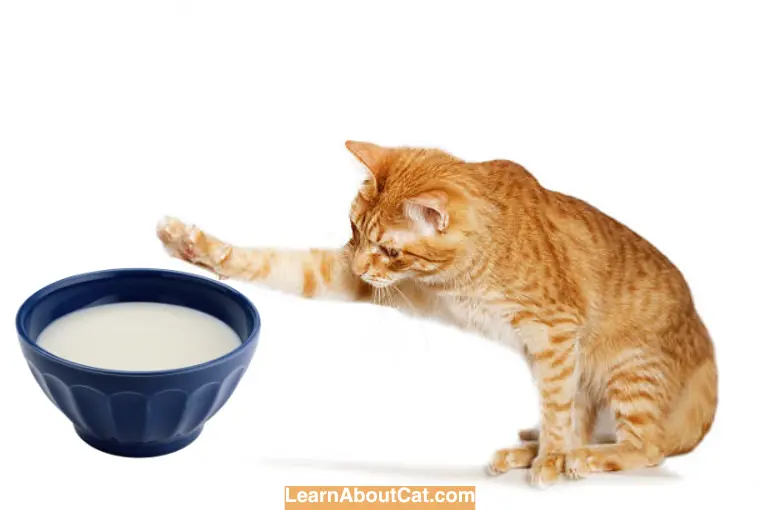
Constipation, gastroesophageal reflux, bloating, frequent bowel movements, hard, malformed, or discolored feces, irritation, and blood from the anus are the problems that milk of magnesia will help you to treat.
Still, feeding your cat milk of magnesia may not be effective if your cat isn’t genuinely experiencing dyspepsia or constipation because you can’t be certain that he doesn’t have a separate problem with his tummy or intestines.
Also, Check Out: Can Cats Drink Cold or Warm Milk? Is it Safe? Things You Need to Know
Can Kittens Have Milk of Magnesia?
No, it is not recommended to give kittens Milk of Magnesia. Although this laxative is typically secure for human usage, it might not be suitable for kittens. Kittens have delicate and developing systems, and their requirements differ from adult cats.
Kittens have sensitive gastrointestinal systems, so they must only be given nourishment and medications under careful supervision. Kittens who use Milk of Magnesia may experience diarrhea or other gastrointestinal issues, that can result in exhaustion and other medical complications.
It is essential that you must consult with a vet who’ll suggest a suitable care plan if your kitten is constipated or has other gastrointestinal problems. The veterinarian might suggest a special kitten-friendly food or alternative medicine.
Interesting Reading: Can Cats Drink Buttermilk? Is Buttermilk Safe For Kittens?
What Is the Fastest Way to Relieve Constipation in A Cat?
As a natural treatment, eat meals high in fiber, and a spoonful of squash puree either once or two times per day and you can also give your cat ginger. Your body’s fitness will be maintained with the aid of probiotic microorganisms. To maintain your cat’s weight, give him a lot of fluids to drink. If you think your cat suffers from chronic conditions, talk to your veterinarian before giving laxatives without any prescriptions because they can make the conditions worse.
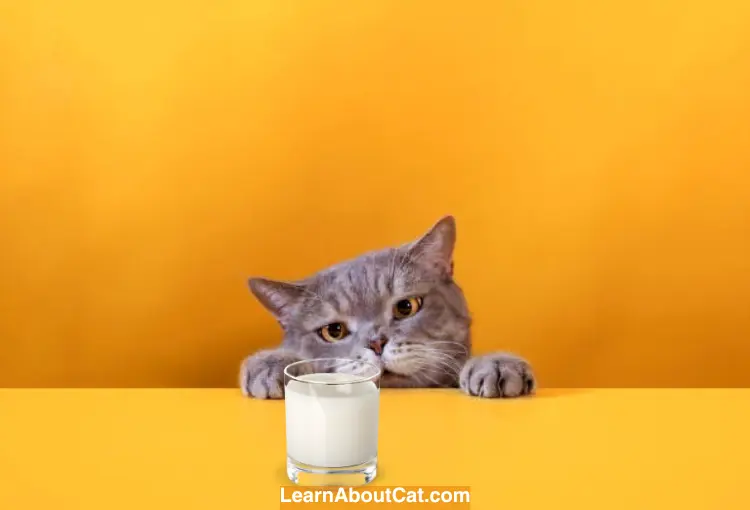
If cats become occasionally plugged up, it may be tough for them to release feces. Cats with constipation frequently use their litter tray, so if you notice this, you must be worried. Try these natural therapies to help your cat learn what you’re trying to teach him because he might not be ready to learn it on his own.
Pumpkins could be pureed to add fiber to your cat’s nutrition. Most of the liquid in tinned meals retains its moisture content, which encourages normal digestion and excretion. To minimize the quantity of hair in their gastrointestinal system, long-haired cats might need to undergo a hairball treatment.
Several cat-friendly kinds of toothpaste, including tuna, contain a petroleum-based component that lubricates the intestines. Your cat is more prone to use the litter box if it is kept clean. Add a tiny bit of chicken broth to your feline’s bowl to encourage them to drink if they’re dehydrated.
Encouraging your cat to drink more water can help soften the stool and prevent dehydration, which can contribute to constipation. Your veterinarian may recommend methods to increase water consumption, such as providing a freshwater source or adding moisture to the cat’s diet.
Your vet might suggest probiotics or other medications for them unless there’s a more significant problem that has to be treated. Furthermore, you may ask them for advice on how to adjust your cat’s nutrition or lose weight. Long-term usage of wax is not advised because it might cause furballs and constipation. Many cats need a specific diet and medicines for years to come after being chronically constipated. You might need to talk to your vet if your feline isn’t improving after therapy.
Find Out: Why Do Cats Scratch The Sides Of The Litter Box? All You Need To Know
How Much Milk of Magnesia Can I Give My Cat: The Dosage of Milk of Magnesia for Cats
It relies on a variety of variables, such as your cat’s weight and height, the degree of constipation, and general fitness. However, according to a basic guideline, you must begin with a tiny amount (like 1/4 tsp) and increase it as necessary.
Stop providing your cat milk of magnesia if it displays symptoms of pain or agitation. Adjust after giving your cat 1/4 tsp of magnesium milk per meal based on the patterns of his stools.
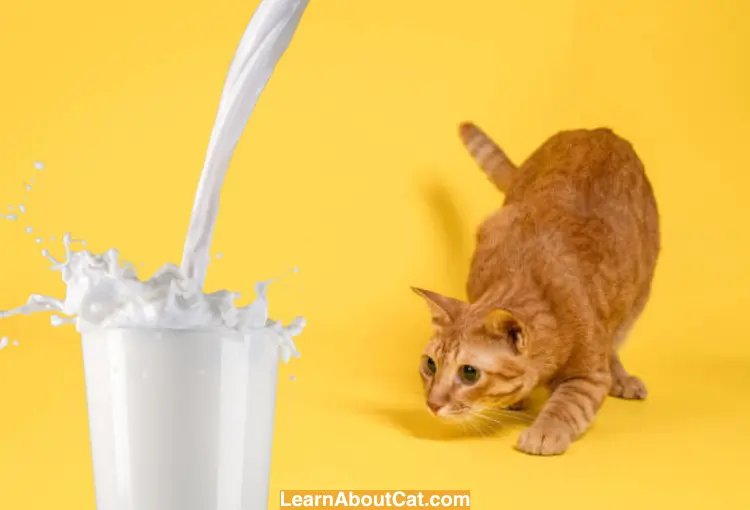
Also, make sure that you must contact your vet if you decide to give them the milk of magnesia. Your vet will suggest you feed 1.25 teaspoons of magnesia milk for every 5 pounds of its weight and half a tsp to your kitten.
For a grown-up cat, roughly 10 milliliters or 2 tsp each day is allowed. While for a kitten only half a teaspoon is recommended. Don’t offer your cats more than this amount, as it can seriously disturb their stomachs. Also, giving fully-grown cat milk of magnesia is never a smart idea. Make sure you must consult your vet before giving them this.
Also Read: Why Does My Cat Meow Loudly After Using the Litter Box? Top Reasons Explained
Will Milk of Magnesia Hurt Cats?
The response of each cat to the milk of magnesia may vary. After consuming the milk of magnesia, some cats might develop gastrointestinal distress, whereas others might not suffer any negative side effects.
Before providing this medicine to your cat, it is recommended that you must discuss with your vet if you have any doubts about whether or not they may be intolerant to or hypersensitive to the milk of magnesia.
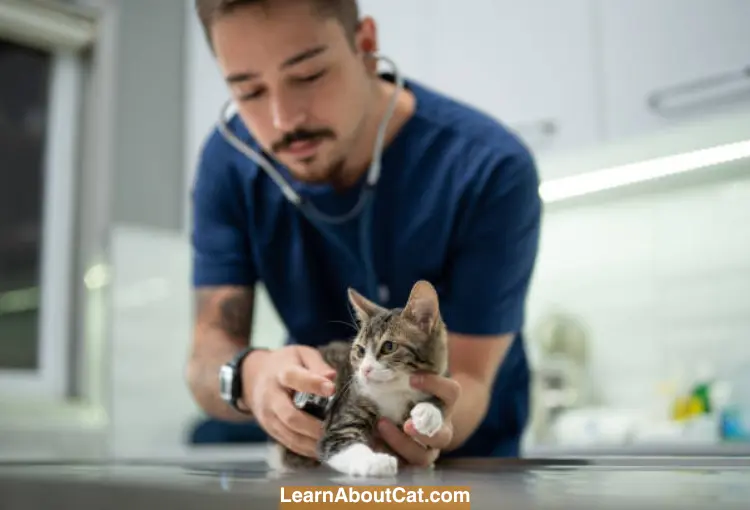
Cats may experience imbalances in essential electrolytes such as potassium and sodium, which can have serious health consequences.
The neurological system, breathing system, urogenital system, and cardiovascular system can all suffer from high intakes of milk of magnesia. A heart attack, a seizure, or even death could result from abnormally elevated levels of blood pressure.
The alkaline nature of Milk of Magnesia can disrupt the delicate pH balance in a cat’s digestive system, causing further complications.
High magnesium intake in cats can cause intestinal problems, drowsiness, and rapid heartbeat. Magnesium solutions that provide around 350 mg of magnesium each day must be given under a doctor’s supervision.
Alternatives to Giving Cats Milk of Magnesia
Magnesium tablets or milk of magnesia may cause constipated cats to experience undesirable side effects, particularly when they’ve previously ingested the medication. So, you can also use natural laxatives as an alternative to this.
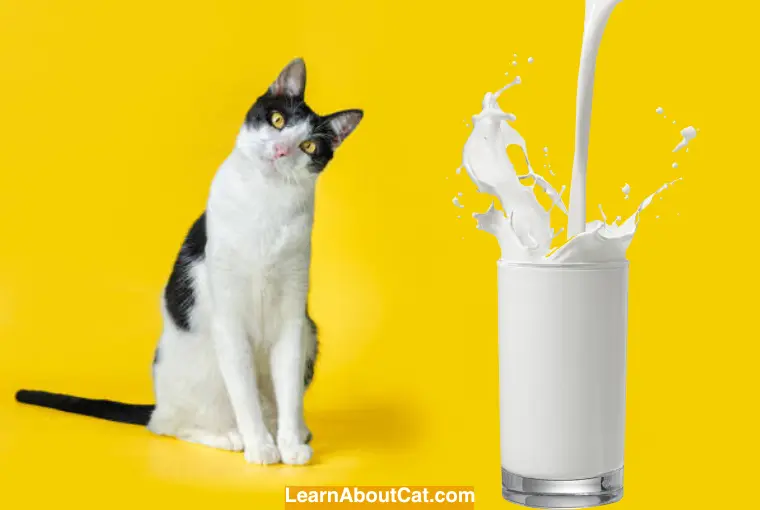
A chemical that aids in promoting bowel processes and relieving constipation is called a natural stimulant. The world’s best natural remedies include aloe, flax seeds, dried plum, and psyllium fiber. All of these nutrients work well and safely to encourage regularity.
- Aloe Vera laxative: effects have been extensively studied and acknowledged. Chia seeds are known to be a healthy laxative and help the digestive tract retain moisture. Since chia seeds pass by intestines rapidly, adding them to your water intake may aid in reducing constipation.
- Flaxseeds: are a great source of fiber, which gives your cats stool volume and facilitates passage down their intestines. Because of the severe risk, research studies advise against using magnesium-based medication by doctors. Instead, you can also utilize progesterone husks. Bilirubin helps stools move thru the gastrointestinal tract and enhances bowel spasms by trying to stimulate the intestines. Studies show that psyllium relaxes stools more effectively than dodecyl sulfate.
- Coconut water: Coconut water is a great source of electrolytes for hydration because it is packed with potassium. Zantaka tea is a non – prescribed laxative that has FDA approval. Long considered a tonic for treating constipation is rosemary tea. Moreover, vets also suggest a diet that consists of prune juice as constipation preventative.
- Prune: also includes a variety of water-soluble minerals, such as vitamin C, that help with gastrointestinal waste removal and meal absorption. Moreover, prunes include high magnesium concentration and a lot of fiber, which is proven to be helpful in treating constipation.
- Olive oil: You might also provide olive oil if you wish to enhance your cats’ nutrition and relief constipation.
- Pumpkin: If your cat is experiencing constipation, you could consider adding tinned pumpkin to its diet. To assist your cat, stay healthy, make sure to provide one spoonful of 100% fresh tinned pumpkin in their food.
How Do I Tell If My Cat Is Constipated?
Constipation occurs when there is difficulty or delays in passing stool. While occasional mild constipation may not be a cause for immediate concern, persistent or severe constipation can have negative impacts on a cat’s health.
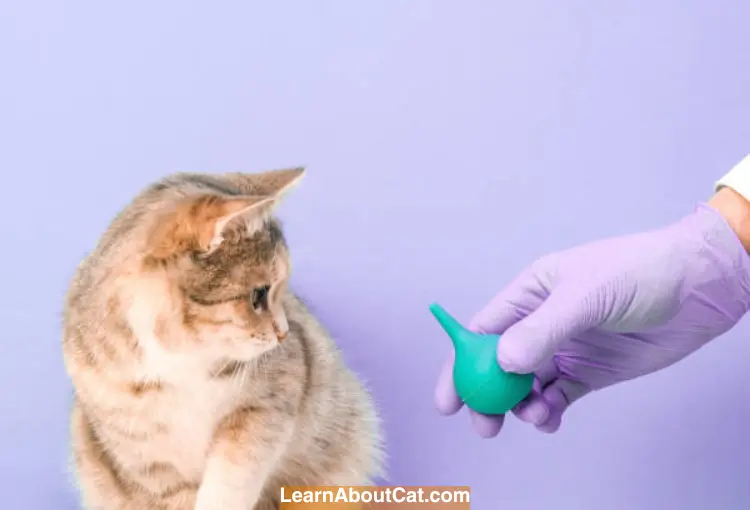
Signs of Constipation in Cats
Here are some common signs that may indicate your cat is constipated:
- Infrequent or No Bowel Movements: If your cat hasn’t had a bowel movement for more than two days or is passing stool less frequently than usual, it may be a sign of constipation.
- Straining in the Litter Box: Excessive straining, crying, or vocalizing while attempting to defecate is a potential indicator of constipation.
- Small, Dry, or Hard Stools: If you notice that your cat’s stools are small, dry, or have a hard consistency, it could be a sign of constipation.
- Pain or discomfort: Cats experiencing constipation may exhibit signs of discomfort, such as frequent licking of the anal area or bloating if they are constipated or pain while attempting to defecate. They may vocalize, exhibit restlessness, or display signs of abdominal discomfort.
- Lack of Appetite: Constipation can cause a decreased appetite in cats. If your cat is showing a sudden lack of interest in food, it could be related to constipation or underlying digestive issues.
- Lethargy or Restlessness: Cats may exhibit signs of lethargy or restlessness when they are constipated.
Causes of Cat Constipation
Cats frequently have constipation due to the food they consumed or for the following reasons:
- Dehydration: A cat’s feces might be extremely difficult to remove if it is not getting sufficient water.
- Diet: Constipation might result from a nutrition that is rich in ashes or poor in fiber.
- Inactivity: While exercise encourages bowel function, cats that aren’t physically active might suffer from constipation.
- Hairballs: Cats who overgroom themselves risk ingesting hair, which can build up in the gastrointestinal tract and result in constipation.
- Medical issues: Cats may experience constipation as a result of some medical illnesses, including megacolon, which causes the colon to expand and lack its flexibility.
Make sure that your cat has constipation issues rather than a plugged urinary system because the urinary blockage will seriously harm your cat.
You must speak to your doctor because feeding your feline milk of magnesia has certain adverse effects. Also, there are particular conditions where it’s preferable to give your cat another medication instead of magnesia milk.
Frequently Asked Questions
Is Magnesium the cure for your cat’s constipation?
Magnesium is a crucial component for cats, however, it does not treat constipation. Although some cats can be benefited from magnesium tablets or food rich in minerals, there isn’t any assurance that all cats would experience relief from constipation by taking magnesium.
What laxative is safe for cats?
According to some veterinary, the following laxatives are often regarded as secure for cats:
Lactulose
Psyllium
Miralax
Polyethylene glycol
Mineral oil
All these laxatives help to absorb water and soften the stool so that it will pass easily through the alimentary canal.
How long can a cat go without pooping?
Cats typically poop 1-2 times a day, though this might change based on the cat’s aging, nutrition, and overall fitness. Cats frequently stay up to 2-3 days without defecating, particularly when they are consuming less, under anxiety, or have a slight medical issue.
But, if a cat hasn’t pooped for 3 days or is displaying other signs like tiredness, nausea, or a decreased appetite, it could be an indication of a serious issue that needs to be treated by a vet right once.
Are there any natural remedies I can try for my cat’s digestive issues?
Yes, there are natural remedies you can explore, such as dietary adjustments, increased water intake, probiotics, and stress reduction techniques. However, it is best to consult with a veterinarian before trying any new remedies.
Conclusion
Cats shouldn’t use Milk of Magnesia before even talking to a veterinarian. Although it’s a non-prescribed laxative that is often harmless for humans to take, cats’ gastrointestinal tracts differ from humans’, so any drug or medicines must be used with precaution.
Milk of Magnesia can cause unpleasant side effects in cats, such as nausea, diarrhea, and exhaustion. A veterinarian must be consulted before giving a cat some new drugs since Milk of Magnesia might interfere with other drugs the cat is already using.
It is recommended to speak with a vet who’ll offer an efficient remedy if your cat is having constipation or any other gastrointestinal issues. The veterinarian might suggest a cat-specific diet, an alternate drug, or other types of therapy.
Who is Isabella?
My name is Isabella, and I am a dedicated and knowledgeable cat enthusiast. With years of experience caring for cats and a deep love for felines, I made a mission to help other cat lovers navigate the challenges of cat ownership.

